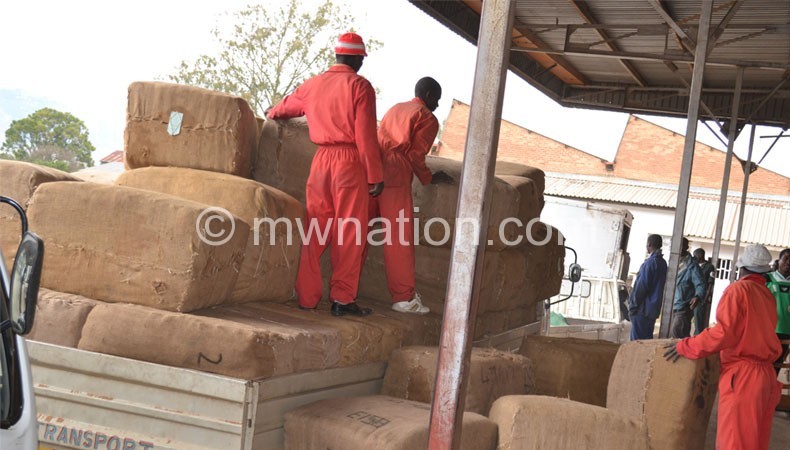Phillip Morris touts Malawi’s tobacco, IPS

Phillip Morris International, one of the global tobacco merchants, has backed the Integrated Production System (IPS) of selling tobacco, saying it can ensure continued supply of quality leaf on the global market.
The company’s global senior vice-president for corporate affairs, Jeanne Polles, who described the country’s leaf as among the best on the market, also tipped the country’s economy to grow steadily in the near future as long as it continues to produce quality tobacco.
“Malawi’s leaf remains well above the others on the international market as the major forex earner; the leaf can improve the country’s economy, a development that can also trickle down to the smallholder farmer on the ground. We believe in doing business with the welfare of the producers at heart,” said Polls.
She was speaking in an interview on the sidelines of a handover ceremony of an excavated dam to Nambuma communities in Dowa which Alliance One Tobacco (Malawi) Limited built with funds from her company.
Polles also said the IPS now being encouraged among tobacco growers has also largely contributed to the consistent supply of the quality leaf on the global market.
“With contract farming, there is usually close supervision as the [tobacco] companies we work with send agronomy experts that include extension workers to help farmers manage their leaf properly. Basically, the farmer is updated with good agricultural practices; a move that stands to benefit them more and ultimately improve their livelihoods,” she said.
Among others, contract farming also links growers to commercial banks where they access loans for farm inputs with which to improve their yield.
Polles’ comments also follow efforts aimed at reducing consumption of tobacco products mainly on health grounds with the World Health Organisation recently calling for stiffer taxation on tobacco, among others; a move that can leave Malawi’s economy hanging in the balance as the global demand for the leaf is set to dwindle.
Malawi’s economy largely relies on agriculture with the main export commodity tobacco wiring in over 60 percent of total foreign earnings; according to official government statistics.
In monetary terms, this represents an average of K172 billion ($400m) per annum.
However, the revenue the leaf brings has been fluctuating over the recent years with the proceeds staying stagnant in the 2013 and 2014 growing season at $362 million (about K155.7 billion).
The leaf fetched $292million (K125.6 billion) in 2011. However, 2010 recorded $416 million (about K178.9 billion) in revenue the country got from the green gold; the highest in the last five years. The year 2012 raked the lowest as it brought in USD177 (about K76 billion).
Meanwhile, the Tobacco Control Commission (TCC) has admitted that any efforts to reduce demand for cigarettes will “have an effect on the demand for tobacco and consequently affecting Malawi because the country grows a lot of it.”
Polles and other top officials from Phillip Morris International were in the country to appreciate efforts tobacco companies make to help improve livelihoods of smallholder growers.





